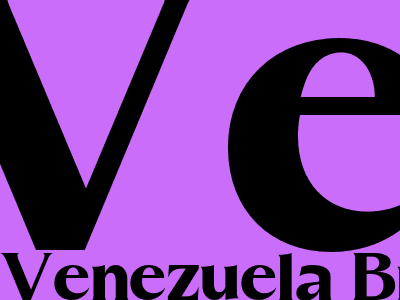
Venezuela and Brazil's Joint Bid for the 2026 FIFA World Cup
A Historical Collaboration
In a groundbreaking move, Venezuela and Brazil have announced their joint bid to host the 2026 FIFA World Cup. This historic collaboration marks the first time two South American nations have combined forces to host the prestigious tournament.
Promises of Infrastructure and Sustainability
Modern Stadiums and Transportation
The bid proposes the construction or renovation of 16 state-of-the-art stadiums across Venezuela and Brazil, ensuring world-class facilities for both players and spectators. Efficient transportation systems will connect cities and venues, facilitating seamless travel.
Environmental Responsibility
Sustainability is a key pillar of the bid. The host cities will implement eco-friendly initiatives, such as renewable energy sources and waste management systems. The tournament aims to leave a positive environmental legacy.
Economic and Social Benefits
Increased Tourism and Investment
Hosting the World Cup is expected to generate a surge in tourism and foreign investment for both Venezuela and Brazil. The influx of visitors and media attention will showcase the beauty, culture, and economic potential of the host nations.
Job Creation and Development
The tournament will create thousands of jobs in construction, hospitality, and other sectors. Infrastructure upgrades and technological advancements will drive economic growth and sustainable development.
Cultural Exchange and Sportsmanship
Celebrating Football
The World Cup is the pinnacle of international football, uniting nations through the shared passion for the sport. Venezuela and Brazil's joint bid will create an unforgettable atmosphere where fans from all corners of the globe can come together to celebrate the beautiful game.
Promoting Peace and Unity
The tournament will serve as a platform for cultural exchange and sportsmanship. It will showcase the diversity and resilience of South America and foster understanding among different cultures.
Challenging the Status Quo
South American Representation
Historically, South America has been underrepresented in hosting the World Cup. This joint bid is a bold statement, challenging the traditional power dynamics in international football.
Innovative Bid Structure
The collaboration between Venezuela and Brazil is a unique approach to hosting the tournament. It demonstrates the willingness of South American nations to work together and set a new precedent.
Conclusion
Venezuela and Brazil's joint bid for the 2026 FIFA World Cup is a visionary proposal that offers a transformative experience for players, fans, and host nations alike. Its focus on infrastructure, sustainability, and cultural exchange promises to leave a lasting legacy that extends far beyond the final whistle.